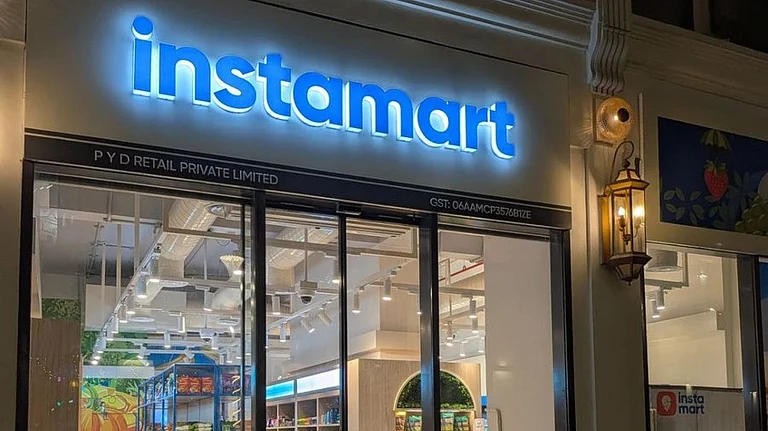A constant discussion that has been happening in India is how quick commerce is now the go-to segment. With the widespread reach of major players like Blinkit, Instamart and Zepto, Kirana stores are facing the heat of it.
The expansion of quick commerce platforms could give a bigger blow to kirana stores and impact their businesses, as per a report by brokerage firm Elara Capital. The firm had highlighted in a previous report that quick commerce platforms could wipe off around 25-30 per cent of kirana stores.
The report further highlights that with kiranas feeling the pressure, distributors are unable to recover dues from these shops. Since the shops are sitting with high levels of inventories, the distributors are not getting paid on time, adds the report. Modern trade isn’t a very new concept in India. The country is home to several retail corporations, such as DMart, Reliance Retail and more.
What is new now is the shopping behavior. Since people shopped in bulk via modern trade, the sales of kiranas were not affected. Kiranas, adds the report, has always been for impulse customer buying. Now, impulse buying is something that might shift to quick commerce platforms.
Kiranas aren’t the only players who are facing the hits of Zepto, Instagram, Blinkit and all other Quick Commerce players. Avenue Supermarts, the parent of DMart, has been facing tough competition, with the shares of the company falling by more than 9 percent after its Q2 results. The company reported a net profit of Rs 659 crore in the second quarter of FY25. This was a 5.7 per cent increase from Rs 623 crore in the year-earlier period.
Soon after this, brokerage firm JPMorgan highlighted, “We have been defending DMart’s business model for a while. However, we now believe the company’s slow response to steadfast market changes toward convenience is starting to hurt the business.”
Discounts or Destruction: The MSP Debate
Concerns about the impact of quick commerce have been raised by retailers associations such as the All-India Consumer Products Distribution Association (AICDF).
The association has also reportedly approached the commerce ministry and urged them to protect the interests of kiranas. Additionally, the association has urged the Competition Commission of India (CCI) to investigate quick commerce platforms for alleged practices of predatory pricing, deep discounting and monopolistic behavior.
Another thing the association has been strongly demanding is the establishment of a minimum sales price (MSP). With allegations of steep discounts being offered by these platforms, the association has been lobbying for the implementation of MSP. The association has highlighted that this would help protect the interests of kirana stores, adds a report by Elara Cpaital.
Meanwhile, recently, Zomato CEO Deepinder Goyal recently said that quick commerce is not eating the share of kiranas. He reportedly said, “Blinkit is not really eating into the kiranas at all. It is not even affecting companies like Dmart. I think we're more or less eating into the Amazons and the Flipkarts, the e-commerce sector, as well as the modern retail in the larger cities.”
Interestingly, Delhivery CEO Sahil Barua told the Economic Times that quick commerce is eating the share of kiranas and not e-commerce platforms. “If somebody is buying aloo, dal, atta, rice... where were they buying it from before? They were not buying it from horizontal e-commerce players,” he reportedly said.
India is home to around 13 million kirana stores. While the exponential growth of quick commerce for now is mostly limited to metro cities. However, the platforms are now focusing on expansion in Tier II cities. In September this year, Blinkit, for example, started operating in Bathinda, Kochi, Vijayawada, and Haridwar.
Now another possibility due to the rapid growth of quick commerce as per Elara Capital is that the livelihoods of people in many parts of the country will be affected as it expands in both metro and non-metro areas. This could lead to potential protests by kirana stores, which may hinder the growth of the quick commerce sector.
While no one knows the future, what is evident right now is that the quick commerce boom has made people cautious. Be it the government initiating a probe on them or associations indicating that these platforms are a threat to fair market play.
































